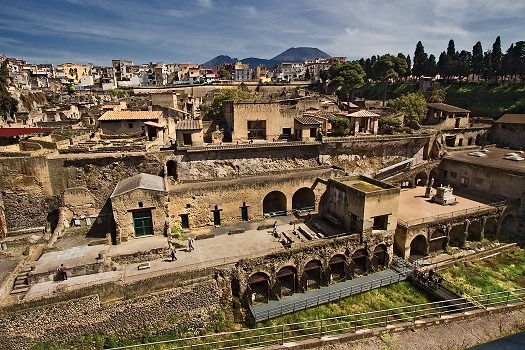One of Italy’s most attractive ancient Roman houses, which was buried under tonnes of ash when Mount Vesuvius erupted in AD 79, now reopened to the public 36 years after it was shuttered in disrepair.
Initially discovered in
1938 the house was given its name as it was the 200th anniversary of
excavations that had revealed the existence of the long-lost city.
The Roman house is located in the archaeological park of Herculaneum and is a three-storey building called the
Bicentenary House contains stunning frescoes and
mosaic floors. Much like Pompeii,
Herculaneum too was devastated by the volcano nearby. An extremely important
artwork has now been saved in the house by excellent restoration work. The
Bicentenary House was being mismanaged, and was declared unstable, and thereby
closed for public back in 1983. According to Leslie Rainer, the site is a
jewel, and considers this world heritage piece to be very
unique.
The ruins of Herculaneum is better preserved as they were buried in a deeper mass of ash. Experts says that the city was wealthier than Poempeii.
The house in question
here, called the Bicentenary House, was home to Gaius Petronius Stephanus, and
his wife Calatonia Themis. It is said that it was one of the finest private
houses in the city with mythological scenes, and animal motifs depicted on
them. Interestingly, the main sliding wooden grill at the entrance of the house
survived the volcano, and is today 2000 years old.
With immense safety measures and care, the conservation team
has now managed to restore the frescoes and other artworks.

